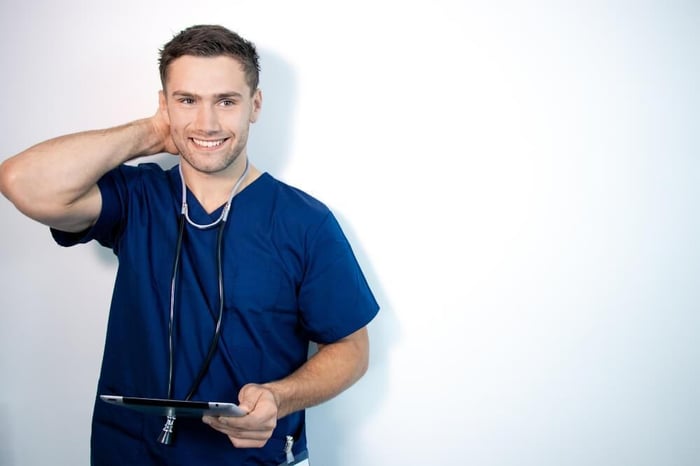
Life as an F3 Year Doctor
My name is Dr Amina Malik. I am partway through my F3 year, working as an F3 doctor. You may have heard this term floating around, increasingly so over the last few years. But what exactly does it mean? In this blog, I am going to give you a short run-through of what being an “F3” means. And, if this is something you are considering doing for yourself, maybe I can provide some motivation or help you see what is achievable in a year!
WHAT DOES F3 MEAN
At the beginning of this year, the UK Foundation Programme Office published their annual F2 Career Destinations Report 2018. This is a survey which all FY2 doctors must complete toward the end of their FY2 year and it describes and summarises the career choices for the cohort of trainees completing their Foundation training that year. The most notable statistic is that, once again, there is a drop in the number of trainees going straight into specialty training upon completion of the Foundation programme. In 2018 only 37.7% of trainees went directly into specialty training. Compare this to 2017, when 42.6% of trainees did. And in 2016, when 50.4% did. In fact, if you look back to 2011, a majority of 70.3% of trainees went straight in to training in their chosen specialties. There has clearly been a drop, and more so over the past few years.

WHY TAKE AN F3 YEAR
- After FY2 is the first natural break to take some time out of training. Whether you have ever wanted to travel, have family commitments or even want to pursue any other interests or hobbies, now seems like a good time for many trainees. Especially with two years of salary under your belt..!
- Working outside of a training programme offers a more flexible way of working. For example, through locums. You are in control of when you want to work and what department you want to work in.
- Opportunity to build your CV. For example, through further education in the form of masters or PhDs, having time to revise for and sit exams without the stress of working on an on-call rota, undertake audits/quality improvement projects… The opportunities are endless!
- It’s become a bit of a trend. More and more people are taking a F3 year and so there is less likely to be repercussions in the future for individuals when they choose to re-enter training. This in itself can make the prospect quite appealing!
- Burnout. This feeling of fatigue and tiredness from changing jobs every four months and keeping up to date with projects and portfolios can often be enough to want to take some time out of training.
Why I decided to take a F3 year
My reason for taking an F3 year was simple. I just did not know what specialty I wanted to go in to. The “academic year” in majority of training programmes begin in August of each year. To apply for your chosen specialty you need to apply in November of the previous year. That was nine months of Foundation training I had not yet completed and 2 specialties (Foundation rotations change every four months) I had not even explored yet! I wanted those nine months to work and learn more about medicine and its specialities. I was aware of the increasing trend of trainees taking F3 years and I was sure that, due to its popularity at the moment, I would not be at a disadvantage when I apply for jobs in the future. After discussing with many of my seniors, I was actually encouraged to go in this direction!
What to do during F3 year
Deciding to take a F3 year is simple enough. The challenge comes with finding what to do. A year is a long time..! Especially as by the time you reach this stage in your career, post a 4-6 year busy medical degree and an even busier two years working as a junior doctor, you’re used to living a pretty hectic life. But, the opportunities are endless. And many choose to divide their year doing a few different things…
- Working – still got bills to pay! With staff shortages all over the country there is no difficulty in securing a locum job. These jobs can be obtained with relative ease through hospitals you have worked at previously or through locum agencies. Working as a locum can earn you more money than working as a trainee, and you of course have the flexibility of choosing what department to work in and your own shift patterns. However, be warned, time spent as a locum doctor does not count toward any training programme.
- Gaining experience in different specialties – You will complete six jobs over your two years as a Foundation trainee. Often your jobs will be generalist in nature and you might not get a flavour of a particular specialty of interest to you. You may choose to explore this specialty in your F3.
- Further experience in chosen specialty – For more competitive training programmes, further experience in certain departments can strengthen your application and show motivation.
- Exploring other options – Maybe you just want to explore interests outside of medicine? Entering a training programme is a lifelong commitment. Sometimes exploring other skills and options can provide you with the reassurance you need that medicine is in fact the vocation for you. A few doctors may even choose to step away…
- Travelling – With no restriction on how many days off you can take, many choose to kick back, relax and give in to their wanderlust.
- Literally anything else you have ever wanted to do – the world is your oyster..!




